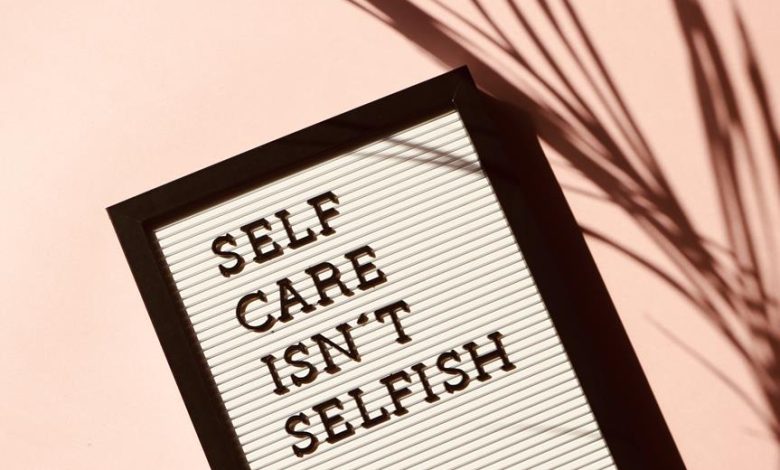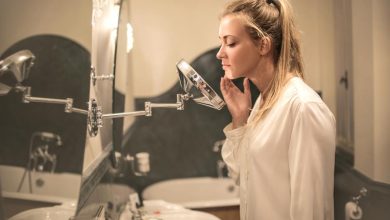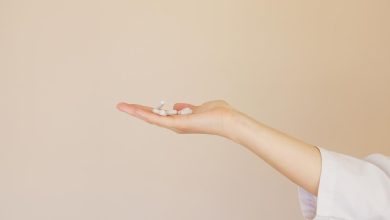Is Acne Messing With Your Mental Health?

Are you tired of battling with acne and its impact on your mental health? You’re not alone. Acne, a common skin condition, can have profound psychological effects, leading to feelings of anxiety, depression, and decreased self-confidence. Research shows that individuals with severe acne are at a higher risk of developing depression. In this article, we will delve into the connection between acne and mental health, offering practical tips to manage both. Take control of your well-being and regain your self-confidence.
Key Takeaways
- Acne can have a significant impact on mental health, leading to anxiety, lack of confidence, depression, loneliness, and decreased quality of life.
- Regular exercise can act as a mood booster and acne treatment by releasing endorphins, improving blood flow to the skin, reducing stress hormone levels, and maintaining a healthy weight.
- De-stressing through activities like meditation, yoga, and mindfulness can help reduce stress levels, which in turn can improve acne and decrease anxiety.
- Getting enough restorative sleep, at least 8 hours per night, is important for skin health as lack of sleep can increase cortisol levels and worsen acne. Taking steps like cleansing the face before bed and power napping can also be beneficial.
The Impact of Acne on Mental Health
Acne’s impact on mental health is significant, affecting individuals’ self-esteem, emotional well-being, and overall quality of life. The presence of acne can lead to feelings of anxiety, lack of confidence, and depression, causing individuals to experience a decrease in their overall well-being. Coping with acne can be challenging, but there are various acne treatment options available to help manage and reduce its effects. From topical creams and medications to laser treatments and chemical peels, individuals have a range of choices to address their acne concerns. Additionally, implementing coping strategies for acne can also contribute to improved mental health. These strategies may include practicing good skincare habits, maintaining a healthy diet, and seeking support from dermatologists or mental health professionals. By addressing acne and implementing effective coping strategies, individuals can improve their self-confidence and enhance their overall quality of life.
The Link Between Severe Acne and Depression
The connection between severe acne and depression is a subject of significant research and discussion in the medical and mental health communities. Studies have shown that individuals with severe acne have a 63% increased risk of developing depression compared to those with clear skin. The psychological impact of acne can be devastating, leading to feelings of frustration, embarrassment, and self-consciousness. In some cases, severe acne can even contribute to thoughts of suicide. To highlight the severity of this issue, let’s take a look at the following table:
| Psychological Effects of Severe Acne |
|---|
| Anxiety |
| Low self-esteem |
| Social withdrawal |
| Depression |
| Suicidal thoughts |
| Poor body image |
As the table demonstrates, severe acne can have a profound impact on an individual’s mental well-being. It is crucial to address both the physical and emotional aspects of acne to provide comprehensive care for those affected.
Acne’s Effect on Self-Image and Confidence
Due to its visible nature and potential for scarring, acne can significantly impact an individual’s self-image and confidence. Acne scarring serves as a constant reminder of past breakouts, leading to feelings of self-consciousness and a negative self-image. Individuals with acne may avoid social situations, intimate relationships, and even professional opportunities due to the perceived stigma associated with their skin condition. The psychological impact of acne can be profound, leading to a decrease in self-esteem and overall confidence. However, it is important to note that there are ways to improve self-esteem and confidence for individuals struggling with acne. Seeking professional help from dermatologists and therapists can provide guidance and support in managing acne and improving self-esteem. Additionally, practicing self-care, adopting a skincare routine, and focusing on inner qualities and accomplishments can also contribute to a positive self-image and improved self-esteem.
Social Consequences of Acne
Social isolation is a prominent compound consequence of acne that can significantly impact an individual’s well-being and overall social functioning. The social stigma of acne can lead to feelings of shame, embarrassment, and self-consciousness, causing individuals to withdraw from social interactions. Coping with acne stigma can be challenging, as it requires individuals to navigate through negative stereotypes and judgments. Here is a table highlighting some of the social consequences of acne:
| Social Consequences of Acne | Impact | Coping Strategies |
|---|---|---|
| Decreased self-confidence | Individuals may feel less confident | Building self-esteem through positive self-talk and self-care activities |
| Social withdrawal | Avoidance of social gatherings | Seeking support from friends, family, or support groups |
| Bullying and teasing | Experiencing verbal or physical abuse | Reporting incidents to authorities and finding safe spaces to share experiences |
It is important for individuals with acne to find ways to cope with the social consequences they may face. Seeking support, building self-esteem, and standing up against bullying can help individuals navigate through the challenges and maintain their overall well-being.
The Vicious Cycle of Acne, Depression, and Anxiety
Acne, depression, and anxiety form a vicious cycle that can significantly impact an individual’s mental well-being. The physical appearance of acne can lead to feelings of embarrassment, frustration, and self-consciousness, which can contribute to the development of depression and anxiety. This cycle is further perpetuated by the impact of acne on relationships. The visible presence of acne can affect an individual’s self-esteem and confidence, making it difficult to form and maintain meaningful connections with others. Additionally, the emotional distress caused by acne can strain existing relationships, leading to feelings of isolation and further exacerbating depression and anxiety symptoms. While medication can play a role in treating acne, it is important to address the psychological impact of acne and provide comprehensive support to individuals affected by this condition.
Exercise as a Mood Booster and Acne Treatment
With its ability to improve overall mood and promote healthy blood flow, exercise serves as an effective mood booster and potential treatment for acne. Regular physical activity has numerous benefits for overall well-being, including its positive impact on mental health. When we exercise, our bodies release endorphins, which are known as “feel-good” hormones. These endorphins help improve mood, reduce stress, and alleviate symptoms of anxiety and depression. Additionally, exercise increases blood flow to the skin, delivering oxygen and nutrients that promote a healthy complexion. By decreasing levels of the stress hormone cortisol, exercise can also help prevent acne breakouts. Incorporating exercise into your daily routine not only enhances your mental well-being but also contributes to healthier skin. So, lace up your sneakers and get moving for improved mood and potential acne treatment.
How Stress Aggravates Acne and Anxiety
Stress can significantly aggravate acne and anxiety, leading to further distress and discomfort for individuals. The effects of stress on the body are far-reaching, and when it comes to acne and anxiety, it can have a profound impact. Here are three key ways in which stress exacerbates these conditions:
- How stress affects hormone levels: Stress triggers the release of hormones such as cortisol, which can disrupt the delicate balance of hormones in the body. This hormonal imbalance can result in increased sebum production, clogged pores, and ultimately, the development of acne.
- The role of inflammation in acne development: Stress also contributes to inflammation in the body, which plays a significant role in the development of acne. Inflammatory responses can lead to redness, swelling, and the formation of acne lesions, causing further distress for individuals already struggling with their skin.
- The cycle of stress and anxiety: Acne itself can be a source of stress and anxiety, leading to a vicious cycle. The stress caused by acne can trigger anxiety, while anxiety can further exacerbate acne symptoms. This cycle can be challenging to break, making it crucial to address both stress and acne simultaneously.
Understanding how stress affects hormone levels and the role of inflammation in acne development is essential for individuals looking to manage their acne and anxiety effectively. By implementing stress management techniques and seeking professional guidance, individuals can take steps towards improving their overall well-being and finding relief from these distressing conditions.
De-Stressing Techniques for Clearer Skin and Calmness
Implementing relaxation techniques can help achieve clearer skin and promote a sense of calmness. By incorporating de-stressing techniques into your daily routine, you can reduce the impact of stress on your skin and improve its clarity. Here are some techniques you can try:
| Technique | Benefits |
|---|---|
| Meditation | Reduces stress levels and promotes a sense of calmness. |
| Deep breathing | Helps relax the body and mind, reducing stress and anxiety. |
| Progressive muscle relaxation | Relieves tension and promotes relaxation throughout the body. |
These techniques can be practiced regularly to improve your overall well-being and reduce the negative effects of stress on your skin. By taking time to de-stress, you can achieve clearer skin and a greater sense of calmness in your life.
The Importance of Sleep for Skin Health
Ensuring an adequate amount of sleep is crucial for maintaining optimal skin health. The relationship between sleep and acne severity is well-established, as lack of restorative sleep can increase cortisol levels, which can worsen acne. Additionally, good sleep improves relaxation, energy levels, creativity, performance, and perspective. To promote good sleep and enhance skin health, incorporating a skincare routine before bed is essential. This routine can involve cleansing the face to prevent future breakouts and applying moisturizers or serums that nourish the skin overnight. Furthermore, creating a relaxing environment in the bedroom, such as removing electronic devices and using calming scents like lavender, can help promote better sleep. Prioritizing sleep and establishing a nighttime skincare routine can contribute to clearer, healthier skin.
Frequently Asked Questions
What Are Some Common Treatments for Acne?
Some common treatments for acne include laser therapy and topical creams. Laser therapy involves using a laser to target and destroy the bacteria that cause acne, as well as reducing inflammation and promoting skin healing. Topical creams, on the other hand, are applied directly to the affected areas and can contain ingredients such as benzoyl peroxide, salicylic acid, or retinoids that help to unclog pores, reduce inflammation, and prevent new breakouts. These treatments can be effective in managing and improving the appearance of acne.
Can Acne Be Cured Completely?
Acne prevention is crucial in addressing its emotional impact. While a complete cure for acne may not exist, effective treatments and strategies can significantly reduce its severity. It is important to understand that acne is a complex condition influenced by various factors such as hormones, genetics, and lifestyle. By adopting a comprehensive approach that includes proper skincare, healthy diet, stress management, and seeking professional guidance, individuals can take control of their acne and boost their self-confidence.
Are There Any Natural Remedies for Acne?
Natural remedies for acne can be effective in improving skin health. Some popular options include tea tree oil, witch hazel, and aloe vera. These remedies have anti-inflammatory and antibacterial properties that can help reduce acne breakouts. Additionally, managing stress plays a crucial role in improving skin health. Stress can exacerbate acne, so finding ways to reduce stress, such as through meditation or exercise, can have a positive impact on acne. It is important to consult with a dermatologist to determine the best natural remedies for individual skin needs.
How Long Does It Usually Take for Acne to Clear Up?
The timeline for acne to clear up can vary widely depending on the individual and the severity of the acne. Mild cases may take a few weeks to a couple of months to clear, while more severe cases may take several months or even years. It is important to note that acne can have a significant impact on self-esteem and confidence, which can further exacerbate mental health issues. Seeking professional guidance and following a personalized treatment plan can help address both the physical and psychological aspects of acne.
Is Diet Linked to Acne Breakouts?
Diet has been linked to acne breakouts, with certain foods potentially exacerbating the condition. High glycemic index foods, such as sugary and processed items, may increase insulin levels and trigger hormonal changes that contribute to acne development. Additionally, dairy products and foods rich in saturated fats have been associated with increased acne severity. While more research is needed, adopting a balanced diet that includes fruits, vegetables, whole grains, and lean proteins may help improve acne symptoms. Consultation with a healthcare professional or dermatologist is advised for personalized dietary recommendations.



